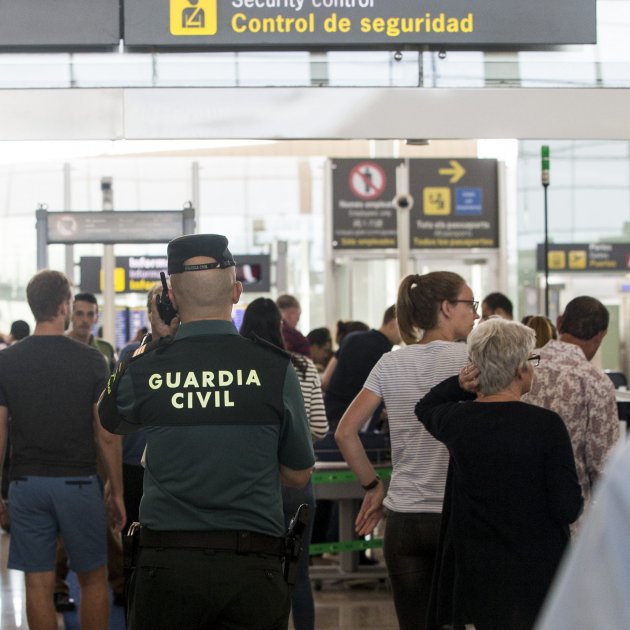The associations of civil guards have voiced their discontent against the Spanish government after it announced that their agents could assume the work of security control at Barcelona's El Prat airport, following the chaos provoked by the strikes of the workers of Eulen.
Immediately on hearing the announcement, the associations recalled that if the security, previously handled by the Civil Guard, had not been privatized, then they would not be adopting the urgent measures decided today.
And they referred to the Law of the Forces & Security Corps of the State, which, in respect to the exclusive responsibilities of the Civil Guard, state: "The protection of the territory's communication routes, coastlines, borders, ports, airports and the centres and facilities that require it."
The Association of the Civil Guard (AUGC) has insisted in a statement that it already warned about the negative consequences of security privatization at airports, as well as at prisons. "Now that the conflict is evident, it falls to the Civil Guard to resolve it, making use of public officials who do not have the fundamental rights such as union and collective bargaining," it added.
Problem of management
For the AUGC, the issue is "a problem of management", since the Civil Guard "is already with minimum resources, and furthermore the duties of security control at airports has to be carried out by specialised agents with the authorization of Aena". The association is not prepared to accept that "the basic agents are the ones who end up paying for the consequences of the labour dispute" by the security workers, and to whom it has shown solidarity.
From the Union of Civil Guards (UniónGC), its president, Ramón Rodríguez Prendes, has expressed its defense of public services and its "firm opposition to eliminate jobs that were occupied" by agents of the corps. Because of that, it demands that the government "gets a move on" and increases the resources for the Civil Guard at airports and prisons.
Meanwhile, at the Union of Officers (UO), its spokesman, Jesús Martín Vázquez, asked the government to "not only comply with its obligation" to the Civil Guard because they have spent "a lot of time asking for salary equality" but continue "to not get it". "We do not have enough staff but nevertheless, we have to reinforce what others can't do," added Martín Vázquez.
For its part, the president of the Association for the Civil Guard (Aprogc), Fernando Ramírez Trejo, acknowledged that, if there is a problem of public order, the government must act, and he recalled that the corps has always been present in the security control lanes at the airports and, as a matter of fact, continue to supervise the work of Eulen. Ramírez Trejo also emphasized the need to guarantee the order and the interest in separating this labour dispute from the political situation of Catalonia.
Yesterday and before the decision, the Spanish Association of Civil Guards (AEGC) criticised the Mininistry of Interior for resorting to its services "again" to "give a solution" to the strike, which it considers "a labour dispute of two private companies". It also reproached the fact that, despite being the "worst paid" and "worst treated" security corps of the Spanish state, the Interior Ministry was asking them to intervene in a conflict between two private companies, which would foreseeably make them "suffer the anger" of some of the workers who would see the civil guards as "enemies".
